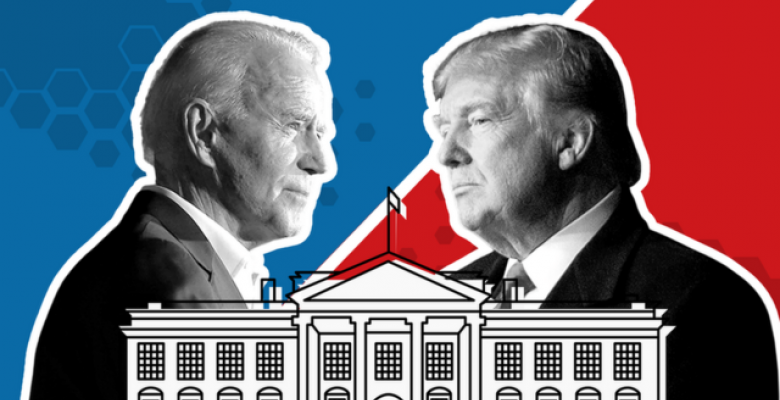Biden? Trump? No matter one way or the other
especiales

If he manages to keep the slight advantage he has so far in the polls, Donald Trump should be able to defeat Joe Biden in the U.S. presidential elections to be held on November this year.
It seems that the Democrats’ leadership has weighed up the flaws regarding age and understanding of the current U.S. president. But they have evaluated that a swift change may well be a backfire at these hours.
And all these, despite a released report on his management of classified documents, in which the special prosecutor Robert Hur concluded in his report that he will not fill charges against Biden, but he did describe him as “a well-intentioned, old man with a poor memory” who forgot when his son died or even when he served as Barack Obama’s vice president.
Republicans took advantage of it to present Biden as a senile old man incapable of leading the greatest power in the world, and Democrats responded that Trump is only four years younger and shows more erratic opinions and behavior than Biden.
There is speculation about a Plan B, which would be for Biden to delegate his votes so that another candidate takes his place, possibly in June, although the Democratic National Convention in August is also mentioned.
Some analysts think that he could be replaced by Vice President Kamala Harris or the more popular Michelle Obama, both with sympathies in the important African-American segment.
The truth is that, so far, Biden is most likely the Democratic candidate for president, despite criticism of his age. And there, the Democrats and the president himself have to learn how to live with a vulnerability that will not change: he will continue ageing.
Trump also has no interest in age being part of the campaign debate: “Age is interesting because some people are very lucid and others lose their faculties. But no, he's not too old at all. He is extremely incompetent.”
AND WHAT ABOUT US?
We should not expect nothing good because although there might be some presidents with lukewarm and dissimilar opinions, the general plan was established by the ruling establishment: eliminate the Cuban "regime."
Former United States presidents such as Jimmy Carter and William Clinton have spoken out against the blockade. Even Barack Obama, who reestablished diplomatic relations with Cuba in 2014. Before becoming president, in 2004, he stated that the U.S. blockade had failed to raise Cubans’ living standards and squeeze the innocent, and it was time to recognize that that policy had failed.
Of course, it is not the same to say it from outside the White House as once in it, when he has to face the entire machinery of the system and powerful interests.
It is appropriate to clarify that although Carter was the only president to order by official directive the attempt to normalize relations with Cuba, he did not quit in the idea of “changing the regime," only that he inverted the equation in the strategy: limitation to the international activism of Cuba, gradual distancing from the “Soviet orbit,” normalization of relations and regime change.
In addition, he created an Interests Section, whose functions multiplied subversive actions and attempted to create and strengthen the domestic opposition, for which they recruited counterrevolutionaries.
In the case of Clinton, he signed the Helms-Burton Act that toughened the blockade against Cuba. Although he had expressed his refusal to sign it, he was pressured by his Democratic Party to get his Republican rival to pass a package of measures that protected his interests.
Clinton was also “scolded” by the establishment for ironing out differences with the much-maligned and sanctioned Democratic People's Republic of Korea, where he even sent a brother and his rock group to Pyongyang, where he performed successfully and gathered pleasant experiences in music, as he declared.
Regarding Barack Obama, the situation appears more complex and it would be necessary to analyze why he did not reestablish diplomatic relations with Cuba in his first term, when he had a legislative advantage, and not in the second, when he was already at a disadvantage.
If Clinton's wife, Hillary, had become President, the situation would not have been more favorable, due to her close ties to the Miami opposition.
But Trump took power, with closures even for Republican farmers who negotiated in pretty favorable conditions with Cuba, as well as hundreds of measures to enforce a blockade repudiated by the international community, but this is no interest to those ruling the United States.
And Biden, breaking his own campaign promises, followed Trump’s paths, with some derisory measures aiming at hurting even more issues concerning inequality.
Against all of these evils, aggravated even more by unfavorable international events, we have been dealing with to avoid a return to the barbarism of capitalism in one of its cruelest stages.
Translated by Sergio A. Paneque Diaz / CubaSi Translation Staff













Add new comment